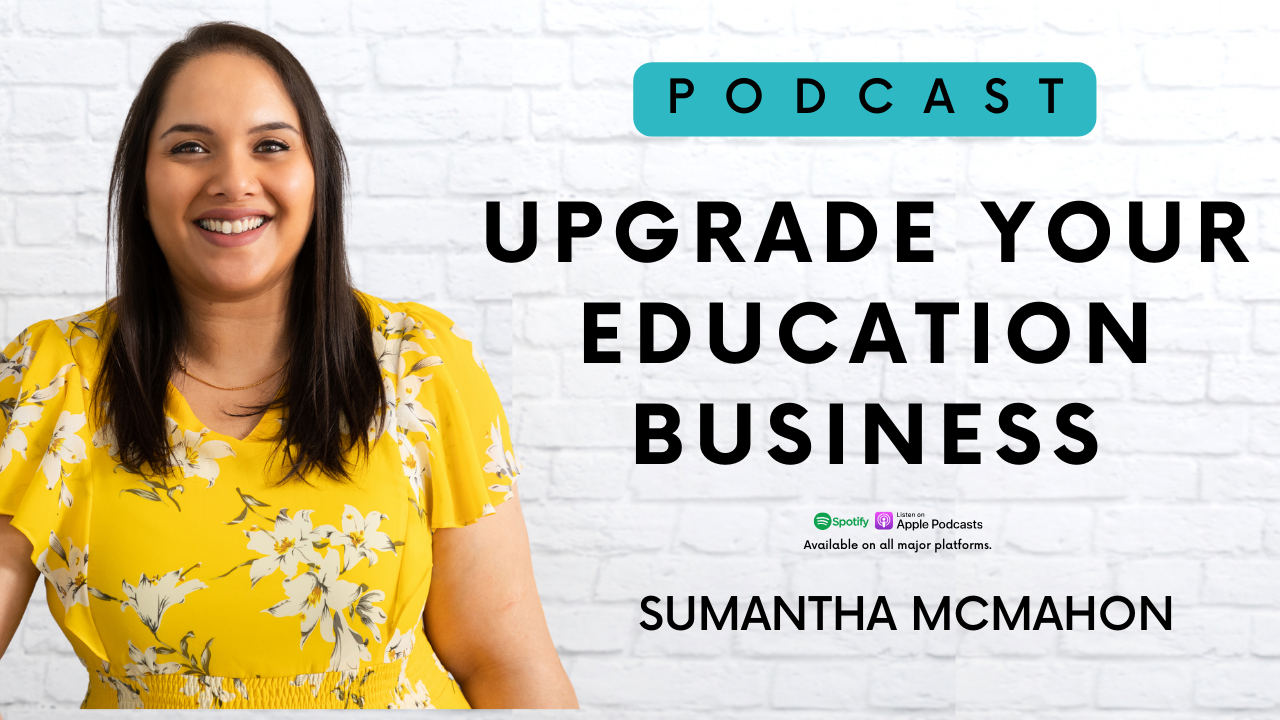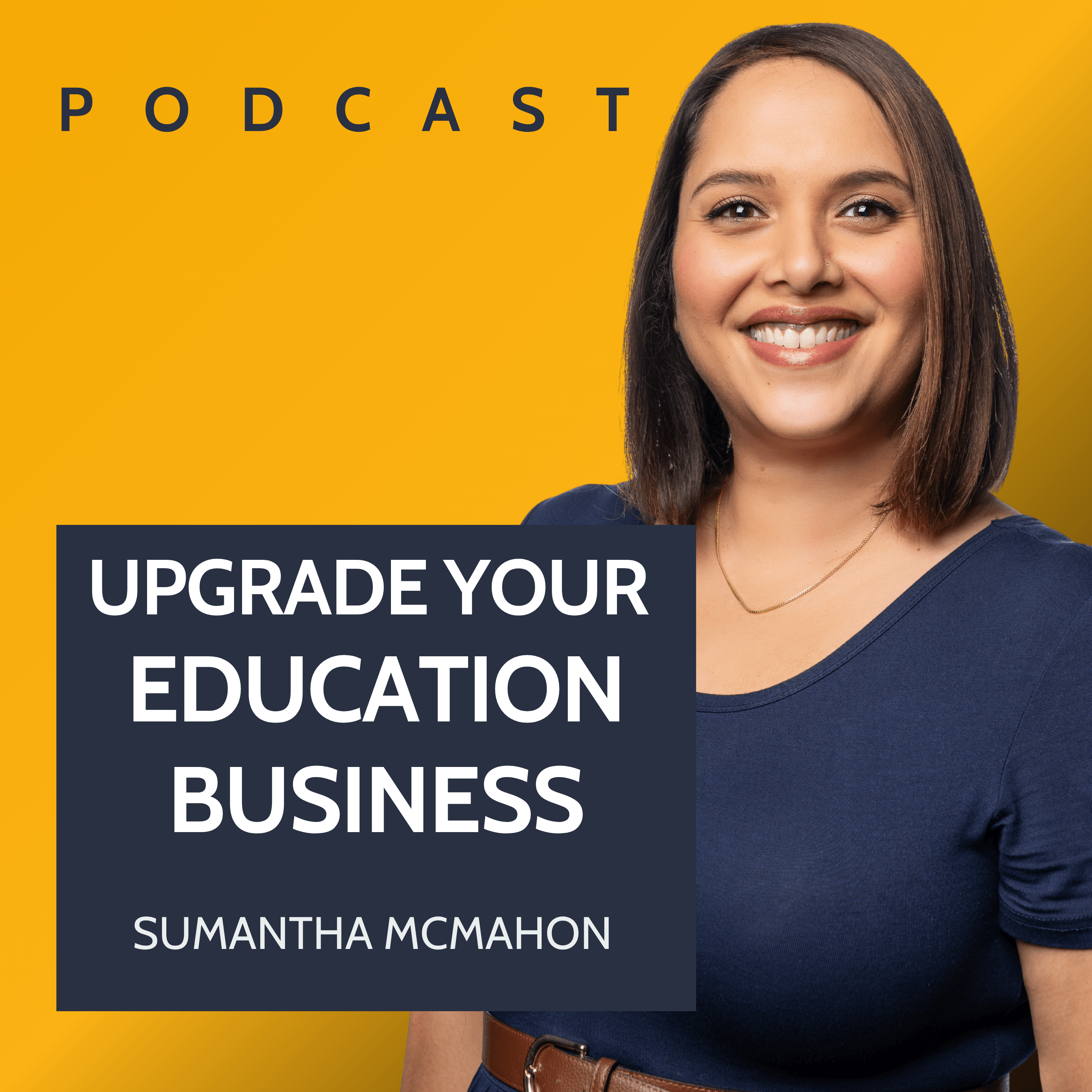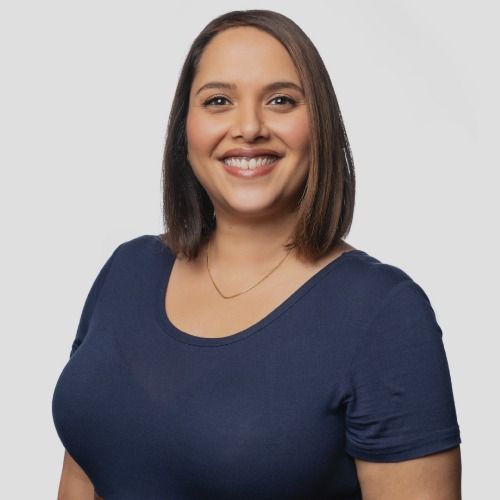full
163 Feeling Awkward About Selling? How to Master Clear Sales Messaging for Your Business
In this episode of Upgrade Your Education Business, I share practical strategies to help tutors and education business owners confidently approach sales.
You'll learn how clear messaging, direct offers, and strategic sales conversations can boost your client conversions.
I'll also reveal why comparing your sales to others can be misleading, and how to shift your focus for better business growth.
Ideal for education entrepreneurs wanting effective sales and marketing techniques.
Enjoy :-)
Sumantha
____________________
👋🏽 Hello! I'm Sumantha McMahon, and I've supported over 100 tutors and education business owners.
As a teacher 'dropout' turned professional tutor, combined with my 20+ years as a business owner, I'm in it with you! Yes, I'm qualified too :-)
My training leans on tried-and-tested methods that are completely tailored to our niche.
Work with me to breathe life into YOUR definition of success:
High-touch 6-month programme for tutors who want to make their business more lucrative, in a sustainable way for the future, while protecting the impact they make.
The leading membership for tutors that combines tailored training (live and recorded), a community of like-minded business owners and exclusive discounts.
Get lifetime access to this self-paced course designed to help you launch, grow and refine your group classes. Includes teaching ideas too.
This podcast is recorded using Riverside. Sign up for your account here (free plan available)
____________________
Sometimes, I share links to resources and apps that I recommend. They are all based on my experience - if I don't love them, I don't recommend them. In some cases, I earn a small commission for my recommendation, at no cost to you.
© 2024 Sumantha McMahon
Transcript
Welcome back to the Upgrade Your Education Business podcast. Today we're getting honest about something that many of us small business owners avoid, and that is sales.
Sumantha:And it's not because we don't care about our work or we don't care about helping others. It's because sales can feel uncomfortable, especially when we don't feel confident or clear.
Sumantha:So here's what we are exploring today. We are gonna explore why being indirect can actually confuse your audience, how to stop writing for yourself and start speaking to the people that you want to support and the real role of a sales conversation.
Sumantha:We will also look at why comparing your sales to others can do more harm than good unless you shift your lens.
Sumantha:And we're going to turn vague sales approaches into confident, value aligned strategies that feel good and get results.
Sumantha:Welcome to the Upgrade Your Education Business podcast. I'm your host, Sumantha, and I'm so pleased you are here. As an education business owner, myself and a former teacher, I understand the nuances that only apply to us. So in this podcast, I share fluff free, tailored, and actionable ideas that you can mould to suit your needs.
Sumantha:If you'd like to take this conversation further, please do reach out. I would love to meet you. And finally, it would mean the world to me if you could leave a review. That way you'll be helping me help more people. Thank you for tuning in. Enjoy.
Sumantha:Many of us unintentionally hide the fact that we have something to offer. We post about wins, values, we post value or transformations. But when it comes to saying, here's how you can work for me, we soften it, we avoid it altogether.
Sumantha:Sometimes ask yourself just as a quick audit. Would somebody know from my last few posts or emails exactly what I offer, how to take the next step?
Sumantha:Being clear doesn't mean being pushy. It means naming your offer, saying who it's for. Letting them know how to take the next step.
Sumantha:For example, instead of I'm now enrolling, you could try, I have two spaces left on my online workshop for people who want to learn how to do X, Y, and Z. We start next Monday. Message me if you'd like details.
Sumantha:So it's really important to be direct. People don't mind that.
Sumantha:And when we write content, we often lead with what excites us. We come from our perspective, or we make assumptions about what we think people want to know, rather than basing it on knowledge of what people want to know.
Sumantha:And we often focus on tone because we want to sound professional, insightful, clever. But your clients aren't looking for clever. They're looking for clarity. They're looking for connection.
Sumantha:From my own experience of working with education business owners, I often hear them saying things like, I keep having calls with people who say they can't afford it, or people like what I do, but no one's buying, or I get ghosted.
Sumantha:So here's a little action step for you. If you're nodding your head, write down five phrases that your ideal clients have actually said when describing their struggles. And I want you to reflect on whether you are using their language, their words, back in your messaging.
Sumantha:So, for example, one of my clients who's running a learning support consultancy changed her service description from executive functioning support to helping children who struggle to stay organised and focused with their schoolwork, and her engagement went up.
Sumantha:This is how you bridge the gap between your expertise and their reality.
Sumantha:Now when you're thinking of sales, having conversations with people are usually very, very powerful. Usually they're the best way actually to sell, but you may have something that where someone can click a button, for example, and buy.
Sumantha:Now, if you are struggling to sell, I would encourage you, even if it's temporary, to actually try inserting that step of encouraging people to speak to you first. I actually did that for a long time with the Tutor's Mastermind.
Sumantha:Now, yes, you can click a button and join, but for maybe the first year, maybe even the first two years, people had to book a discovery call with me first. And it wasn't just because I wanted to make sales, but it was because it gave me really valuable insights into how people were perceiving the Mastermind. Was I describing it clearly? What were their objections? What were their questions?
Sumantha:And eventually, with all that data, I had enough material to put in my marketing content on my landing page. When I was speaking to people, I was able to be really clear and really target the things that I knew the majority of people were asking.
Sumantha:And when you're thinking of these sales conversations, you might call them discovery calls, for instance. They are strategic, not scripted.
Sumantha:Inside the Tutor's Mastermind, I run a three day sales sprint about every quarter and one of the big shifts that members experience is realising that it's not about saying the right thing, it's actually about listening in a sales conversation. Your job isn't to just list features, it's to really understand what that person is struggling with.
Sumantha:You want to reflect back, you want to discuss it so they really feel heard, and then you want to line up what you offer with exactly what they've said instead of speaking generically.
Sumantha:So for example, someone might say, we keep trying to run CPD sessions, but no one engages. Maybe that's the problem they've come to me with. And I could say, it sounds like you're putting in a lot of effort without the response you want. My programme actually helps school leaders run more engaging, needs-led training that gets people involved from the start. I think that could make a real difference.
Sumantha:So you can see that I'm being really specific with what I offer. I mean, I've totally made that up. That wasn't based on a real client or anything, but you can see that in that example, I'm really lining up what I'm saying with what someone is actually telling me.
Sumantha:It is time for a Masterminder moment where I share a challenge that we have recently had inside my membership, the Tutor's Mastermind, and we break it down together.
Sumantha:Now, if you're watching, you'll notice I'm in my living room. I decided to record from a different place and I apologise if there's any background noise. I'll try and minimise that in the editing, but it's just too hot for me to record from my office today, so I'm by the window now.
Sumantha:Something that came up recently was this feeling of how discouraging it can feel when you feel like other people in your niche are booking more clients or they just seem to be doing really well.
Sumantha:And it was prompted by one of the Masterminders saying, I saw someone share that they got 10 signups in one week, and I felt like I was falling behind.
Sumantha:Now, we discussed this in a bit of detail and here's what we unpacked, or here's one of the highlights. It's not about the numbers, it's actually about the percentage.
Sumantha:So let's say someone with an audience of 10,000 people gets 10 clients. That's a 0.1% conversion rate. If you have an audience of a hundred and you book two clients, that's a 2% conversion rate. That's actually better.
Sumantha:And this is why growing your audience and nurturing actually really matters more than those headline figures. And it's why random comparisons can actually be very misleading.
Sumantha:So here's your takeaway. Next time you catch yourself comparing, ask yourself, what's the context? What's my percentage, and what do I want to focus on instead? Do I need to focus on visibility, nurturing, or do I need to focus on conversions?
Sumantha:So when it comes to selling, it's really important to listen and to use what you already know based on fact. Use that to really line up what you are offering and how you're communicating what you're offering.
Sumantha:And something that I often start with when it comes to helping someone who feels very uncomfortable with selling is I ask them to come up with a definition. So I ask them to define what selling means to them and to find a definition they feel really comfortable with that they can lean into.
Sumantha:More often than not, they really like the definition of it helping someone. You may have heard me talk about that. Another thing that you may have heard me talk about is meeting people where they're at, and I've already talked about that a little bit, but I can't emphasise how important that is.
Sumantha:Because in that moment when someone books a call with you or goes to your website or enters your Facebook group or enters your email list, that point when they make that initial bit of contact, and it may not be a situation where you're speaking to them, that's when they need you the most.
Sumantha:Because it's in that moment, they're reacting and responding to a problem that they have. They're feeling it quite intensely.
Sumantha:So it's important to try and nurture them and to help them feel seen and heard from that point.
Sumantha:So here's an example. When someone books a discovery call with me, I ask them some questions that are really targeted before they can even book the actual time and date.
Sumantha:Also, something I do is I don't make my diary available for a really long time. So if you are booking a discovery call with me, you wouldn't see things in dates in three months' time. That's too long.
Sumantha:If you think about the fact that at that very moment is when you need my help, we can't have a really long period between that point and our call.
Sumantha:So you can put things in place to start that process of nurturing, of making sure someone feels like they're in safe hands, that you know, finally they're about to speak to someone who is going to give them that comfort and that safety that they need.
Sumantha:You can start that process really nice and early.
Sumantha:So, to wrap up, let's recap a few things that I covered in today's episode. Sales clarity is really about naming your offer and who it's for. Speak the language your clients use, not what sounds good and clever. And don't worry about including a pun.
Sumantha:And it's really important to be direct. Don't skirt around selling. Tell people what you offer, who it's for, and ask them to press that button. It's so important.
Sumantha:And remember that when you are selling, when you're in a call, it's about looking at it strategically rather than focusing on the words and creating a script.
Sumantha:Some of my clients, they do create a bank of questions they can ask, and to be honest, they don't tend to use that in the call itself. Just the process of writing those questions down alone kind of trains their brain.
Sumantha:So I really hope this episode has shifted something for you and given you that lightbulb moment where you think, you know what? This is one thing that I can really tweak that I think will have a really big difference on my sales experience.
Sumantha:You know, we're not just talking numbers here. To get the decent numbers, you have to enjoy selling. If you don't enjoy it, then you won't do very much of it. And if you don't do very much of it, you won't make so many sales.
Sumantha:So I hope you enjoyed today. Thank you for staying with me. Thank you for giving me your time. And you'll hear from me on Wednesday.
Sumantha:Would you like to take this discussion further? Perhaps you have some questions or you'd like more ideas on tailoring your business. If so, book a free discovery call through the link in the show notes.


